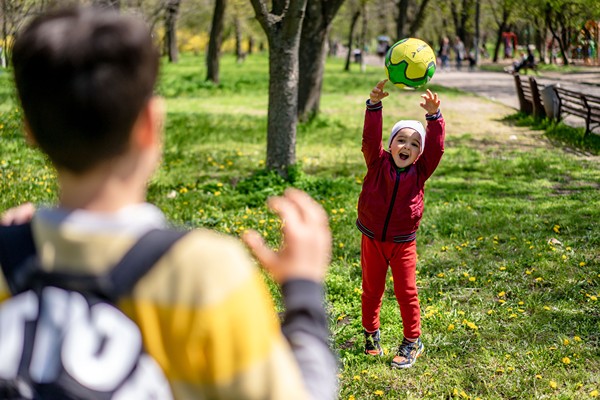3 Tips for Letting Your Kids Game Productively
Ensuring that your kid’s gaming time doesn’t eat into their studying time can be particularly tricky. This is especially so in our modern world, in which games can be played on virtually every device, making it harder to set clear boundaries between fun and focus.
While educational math games are ideal for the classroom, your child will likely still want to spend a little time on Minecraft. There are some key ways you can ensure that your kid’s gaming can be a part of a healthy, productive relationship with the world around them, so let’s talk about that.
Create a positive feedback loop
A great way to ensure that your child obsessively thinks about gaming is to attempt to outright ban it in your home. Instead, consider what level of gaming you would think is healthy and appropriate, and create a positive feedback loop where they can engage to that degree.
For example, you might consider two hours with a ten-minute break in the middle to be a healthy approach to gaming. Instead of punishing your child when they don’t conform to that rule, celebrate them when they do. Perhaps offer them their favorite snack during that break time.
Be engaged with your child’s games
A child spending their time sealed off from the world around them is one that can develop quite an unhealthy relationship with both games in general, and the people in their life. A great way to bridge this gap is to become interested and engaged in the games your child is playing.
While this might be a little tricky if you’re not a gamer yourself, you can follow some simple rules to engage well. For instance, ask an open-ended question about a character in the game, and allow your child to talk as much as they want. You could also sit with your child while they game, and point out some tips and tricks.
Engaging with their hobby will help them to understand that you want to be a part of their life. With time and patience, the two of you can build up a relationship over this complex part of our world.

Create a balanced rule system
While a hard and fast rule system may have worked in the past, it may not be ideal in your home. Over time, kids will become more aware of the relative fairness in the world around them. Therefore, insisting on an arbitrary gaming time limit while not stopping anything yourself might seem frustrating to them.
Instead, consider creating and visibly sharing a rule where both you and your child have to stop doing something. Your child has to stop gaming for a little while, and you, perhaps, have to put your phone down. During this time, perhaps you could reconnect a little, make dinner, or do a fun activity together. Since you’re both giving something up for a time, the rule can be more equitable and approachable to a child.
While gaming can be a great source of learning and development, it’s not something that people typically want their kids to do all the time. With a little time, and the tips outlined above, you can manage your child’s relationship to gaming effectively to create a fair and productive household.
Related Reading




